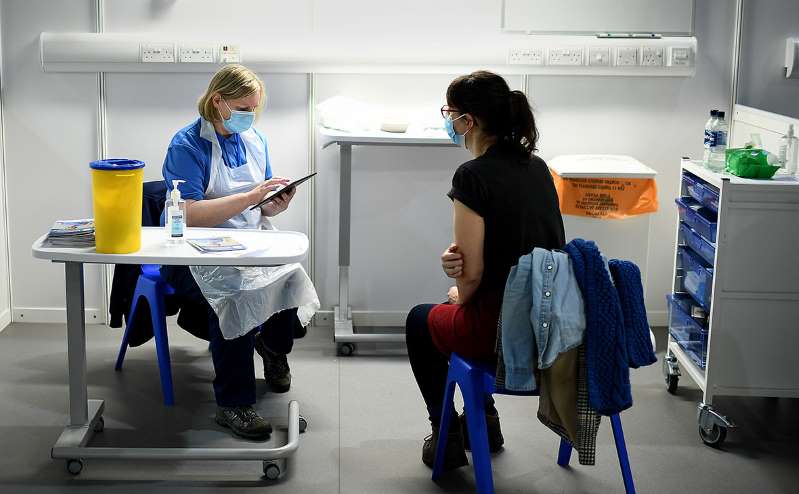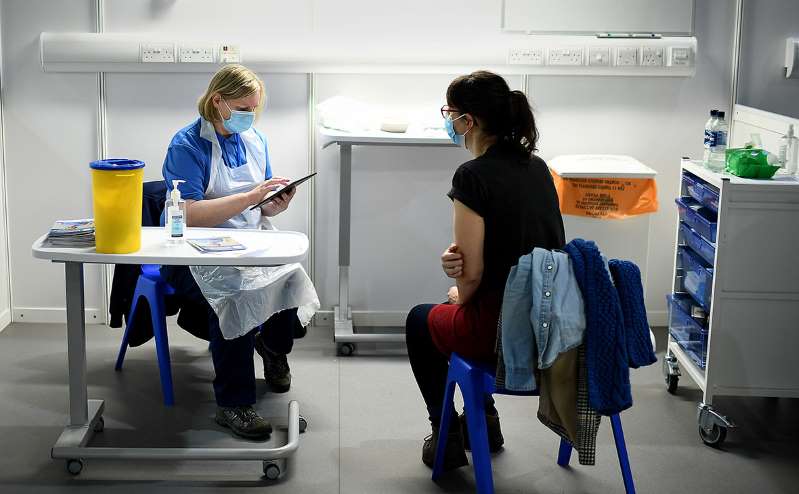
What problems faced Europe

Despite the start of vaccination in December, the countries of the European Union were unable to vaccinate a significant number of citizens against the COVID-19 coronavirus. As of January 27, Denmark (3.7), Slovenia (2.9) and Ireland (2.9) became the leaders in vaccination per 100 people in the EU, but this is noticeably lower than the vaccination rate in Israel ( 49.1), Great Britain (11.2) or the United States (7.1), follows from the Our World in Data database. No EU country has been able to vaccinate more than 5% of its population. In Israel, this figure exceeds 30%, in Britain it is 10.5%, in the United States – 6% .
Vaccination strategy in Europe
In order to counter the pandemic, the European Commission, on behalf of the 27 EU countries, signed contracts with six manufacturers of vaccines against COVID-19:
BioNTech-Pfizer (USA – Germany),
AstraZeneca (Sweden – UK),
Sanofi-GSK (France – UK),
Johnson & Johnson (USA),
CureVac (Germany),
Moderna (USA).
What is the reason for the slow pace of vaccination
The main reason why the EU was unable to vaccinate more citizens is the lack of vaccines. This is partly due to the EU's delay in purchasing and approving the use of vaccines by regulators, analysts say. “In the UK and US, regulators have given permission for the vaccine to be used in an emergency and have taken responsibility in the event that something goes wrong. However, the EU, on the contrary, insisted on going through all the procedures as planned, ”said Cedric Gemel, an analyst at the consulting company Gavekal Researh (the company's report is at the disposal of RBC). Thus, in the United States and Britain, the vaccination period began several weeks earlier than in the EU.
In addition, the vaccine companies experienced supply disruptions. This, in particular, concerns the Anglo-Swedish pharmaceutical company AstraZeneca, whose shipments to Europe are behind schedule. “The first stage of vaccine production is carried out at two plants in Belgium and the Netherlands. Difficulties arose with the production of the main component of the drug <...> We are two months behind schedule, but now we are already working on solving this problem, ”said the head of the company, Pascal Sorio. When reporters asked why a similar technical failure did not occur during the supply of the drug to the UK, the head of AstraZeneca said that the contract with London had been signed three months earlier, which made it possible to eliminate the malfunction.
The deviations from the schedule mean that the EU is unlikely to receive 100 million doses of vaccines during the first three months of this year, as originally planned. Due to problems with supplies, European Commission President Ursula von der Leyen demanded that manufacturers accelerate supplies and fulfill their obligations. “We regret the lack of clarity on the delivery schedule and ask AstraZeneca to provide a concrete plan for the supply of the number of vaccines announced for the first quarter of 2021,” said European Health Commissioner Stella Kyriakides. The Italian authorities, in turn, announced their intention to sue vaccine manufacturers Pfizer and AstraZeneca due to delays.
Some countries have decided to purchase vaccines from third countries, rather than wait for the EU to figure out how to arrange supplies. In particular, Hungary went this way, which agreed on the purchase of the Russian Sputnik V vaccine and is negotiating the purchase of a Chinese drug for coronavirus. “The process of centralized procurement of vaccines by the European Commission has been very slow, especially given the extremely high expectations that were fueled by the European Commission from the outset. As a result, it turned out that instead of the millions of units of the drug that we need, the flow of vaccines coming to us amounts to tens of thousands. This allowed us to vaccinate only 140-150 thousand people out of a total population of 10 million, ”Hungarian Foreign Minister Peter Siyarto told RBC.
When European countries reach vaccination goals
According to the original plan, the European Commission was going to vaccinate 80% of citizens over 80 years old and medical workers by March, and by April to vaccinate 70% of the EU population. Thus, the EU expected that the population would acquire collective immunity by the third or fourth quarter of this year. According to forecasts of the Barclays bank (RBC has it), by August the EU should have enough vaccines to inoculate every citizen of the community. However, how successfully the EU will be able to vaccinate the majority of the population to gain herd immunity (more than 60% with resistance to the virus) depends on several factors, the bank notes. These factors include:
- likely new supply difficulties;
- the desire of citizens to be vaccinated – according to surveys conducted by Ipsos, in three of the four largest EU economies – France, Italy and Spain – the share of those wishing to be vaccinated is less than 60%, in France – 40%;
- the speed of approval for the use of different vaccines;
- the time between the first dose of the drug and the second;
Considering all these factors, Barclays predicts that the EU will be able to develop collective immunity by the end of the third or early fourth quarter of this year. If the EU can convince drug manufacturers to increase supplies, and citizens are more willing to agree to get vaccinated, then herd immunity could be developed by the beginning of the third quarter. Among the possible risks that could delay the acquisition of immunity are the emergence of new variants of the coronavirus that are not vulnerable to vaccines, as well as delays in deliveries, writes Barclays.
The continuation of the active phase of the pandemic and the postponement of the lifting of social restrictions creates negative risks for the European economy. Bank of America (BofA) lowered its forecast for EU growth in 2021 in annual terms amid the extension of restrictions – from 3.9% to 2.9%. “The high number of infections in Europe and the continuing pressure on the health sector have led to longer and sometimes more severe lockdowns,” BofA said.

